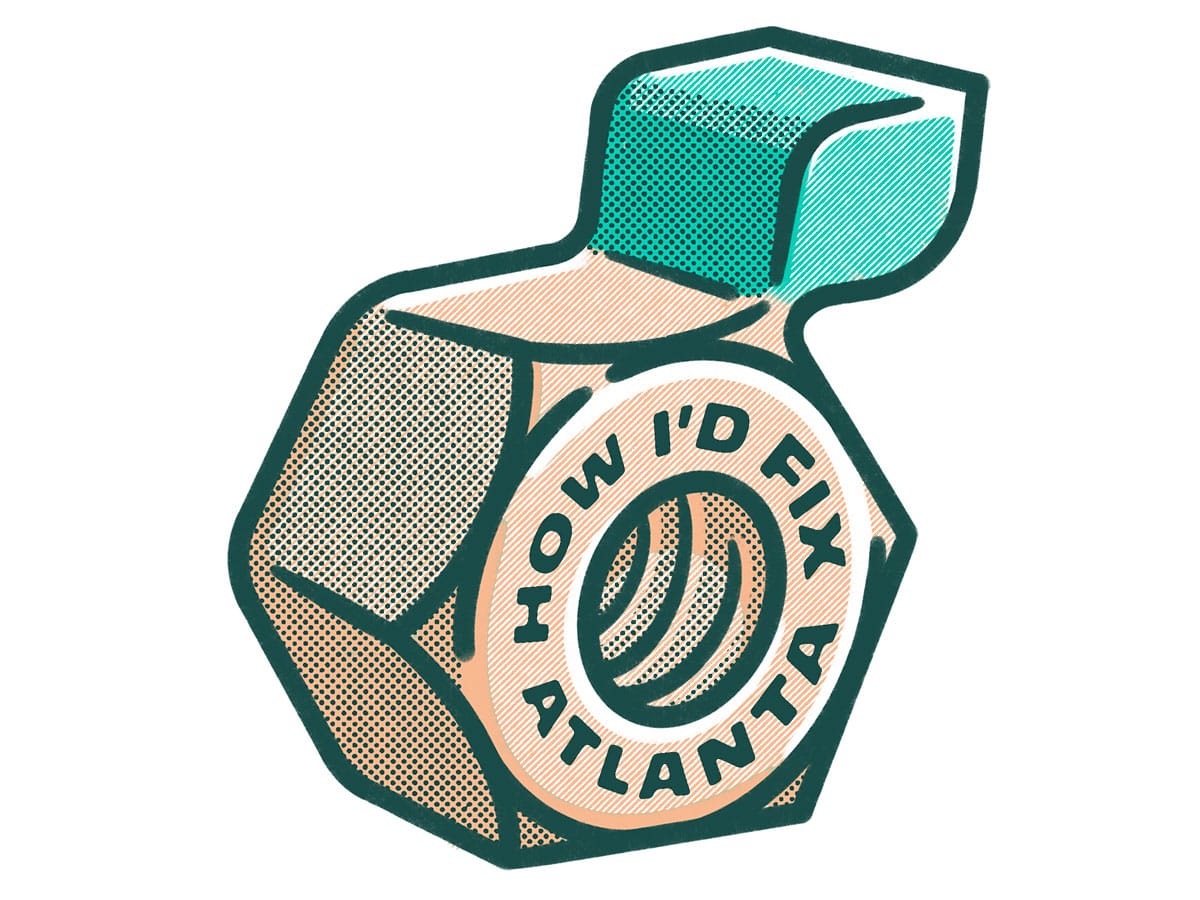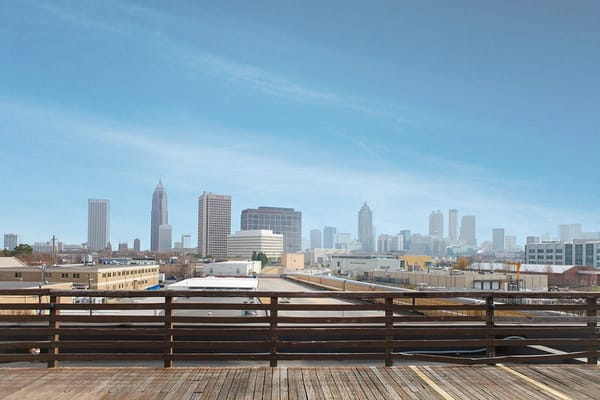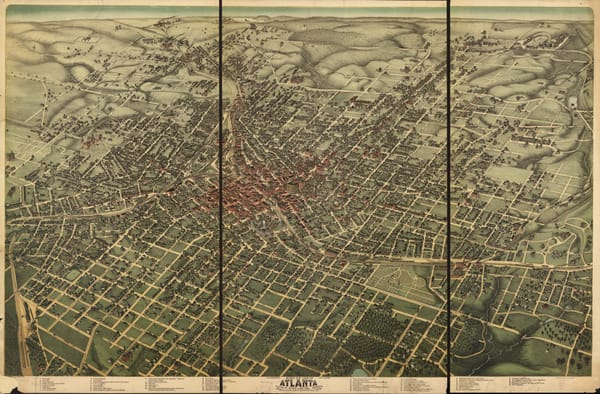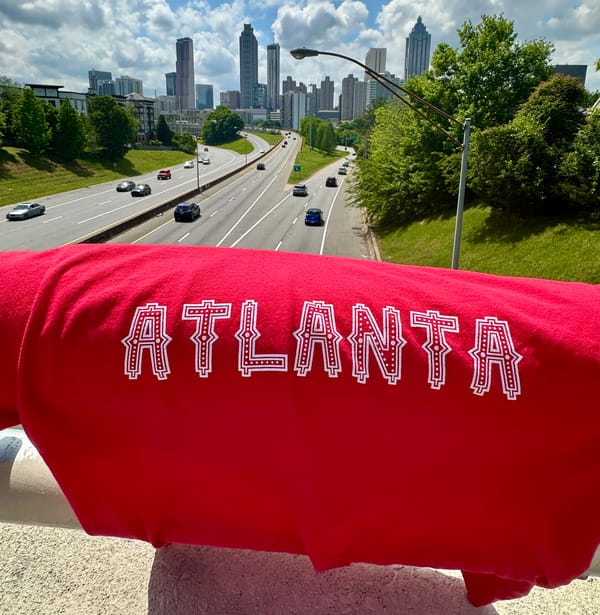How Stacey Hopkins Would Fix Atlanta
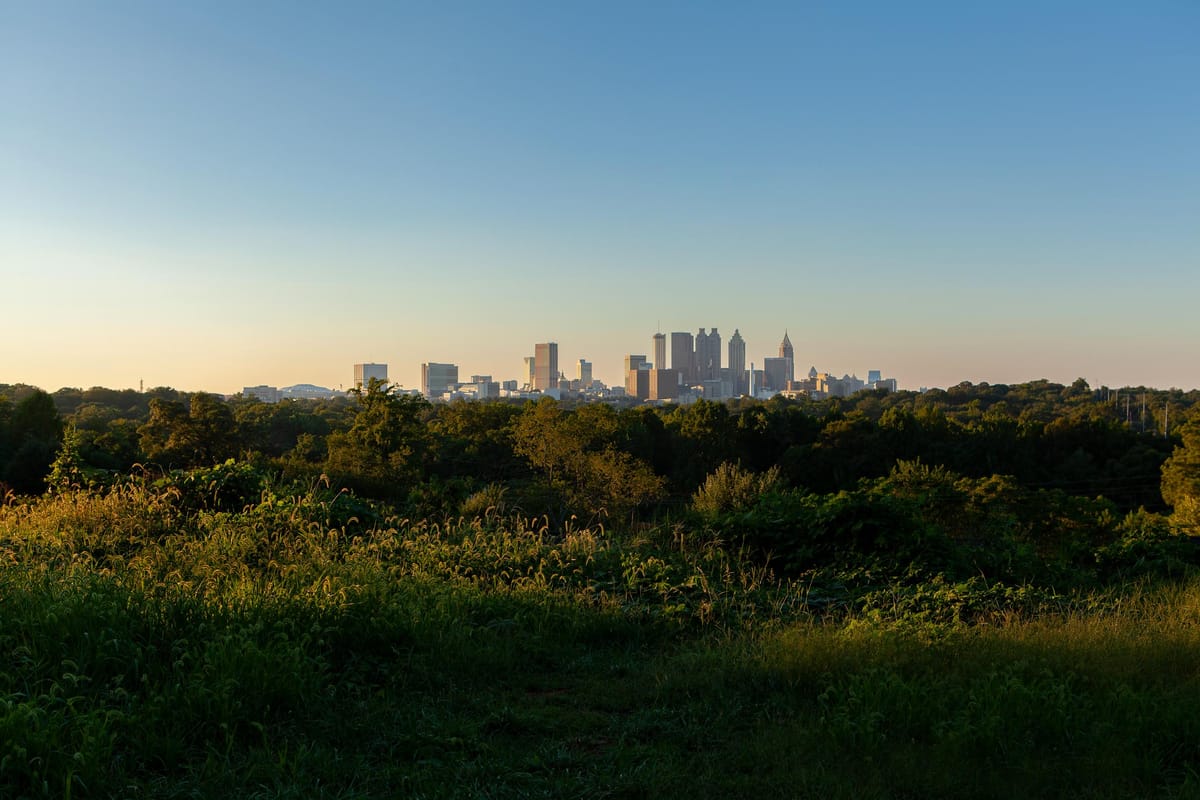
How I’d Fix Atlanta — Start Prioritizing People Over Capitalism
Stacey Hopkins
Atlanta has an identity crisis. It’s caught between conflicting ideals and values, as it aspires to live up to the myriad marketing phrases people have put upon it over the years. Gate City, The City Too Busy to Hate, Atlanta Influences Everything, ATL, Forever I Love Atlanta, The “A”—what do these mean in terms of the city they describe? They’re catchy and sometimes great for promotion, but what are they promoting, exactly? What is their purpose beyond boosterism?
Atlanta is a hub of the civil rights movement and the home of one of its most celebrated leaders, social activist and preacher, Dr. Martin Luther King, Jr. Dr. King’s philosophies of non-violent civil disobedience led him to espouse the concept of the Beloved Community, an idea first coined by the American philosopher and historian Josiah Royce in the early 1900s.
The Beloved Community is defined as a place where everyone is cared for, a place absent of poverty, hunger, and hate. King also attached his six principles of non-violence to the idea along with the addition of what he called the “three evils”—poverty, racism, and militarism.
Those three evils are present and thriving in modern day Atlanta, and if Dr. King were with us today? I think he'd be furious right now on account of what we've become. It reminds me of the infamous Boondocks episode where he returns to the present day after being in a coma since 1968.
Put another way: we’ve gone backwards in practically every metric established through the civil rights movement. In some cases, we’re worse off than we were 60 years ago.
Atlanta stands at a crossroads: Does it wish to carry the true weight of the civil and human rights inheritance left to it, or does it wish to be a city of industry and capitalism? Increasingly, we're seeing that we simply can't do both.

ATL has consistently ranked in the top spot for income inequality for well over a decade despite our robust economic growth. City leaders should be alarmed and ashamed. The persistent income gap that disproportionately impacts Black residents and touches many aspects—from food insecurity, which has only increased since the COVID pandemic, to rising homelessness due to the lack of affordable housing—are simply byproducts of capitalism.
Add rising inflation to the mix and we have more residents than ever before seeking help from food pantries. No better visual exists of the unhoused problem of our city than the juxtaposition of the people who occupy the sidewalks directly across the street from Atlanta’s City Hall and the Georgia Capitol.
As for the current affordable housing crisis? In 1935, Atlanta was the first city in the nation to provide subsidized public housing with the opening of Techwood Homes. In 1994, it began the process of tearing down every single housing project to be replaced with mixed-income communities, albeit with restrictive and discriminatory drug policies.
As George Chidi wrote for this series last year: Atlanta is “a safe haven for America’s slumlord property bros. The most exploitable city in one of the most exploitable states in America. A place where the rich get richer and the poor get evicted.”
Racism thrives, of course, though it varies from covert to blatant. The legacy of racial redlining still rears its ugly head in Atlanta neighborhoods and manifests itself in housing via the disparities in the ability of Black and Latino homeowners to access credit.
Elsewhere, discrimination bubbles up in lower appraisal valuations and, most notably, the predatory lending that helped create the housing bubble that decimated Black neighborhoods after the bubble burst in 2008. All of which was a perfect storm for gentrification displacement to take hold with the BeltLine.
All of this without touching on what King Williams described in an early HIFA essay about our transportation woes as “decades of poor decision-making inspired by greed and racism.” Viewed through this lens, our debilitating automobile dependency becomes something much more sinister.
Our communities are now the new battlefields in which warfare is regularly waged. From the institution of SWAT teams in the 1960s to the post-9/11 America attitude shift, we've endured a perpetual "war" that's powered the further institution of policies that allow police departments to access military grade equipment and surveillance techniques. And all of these nasty things have increasingly been used as a tool against citizens who are viewed by police as enemy combatants.
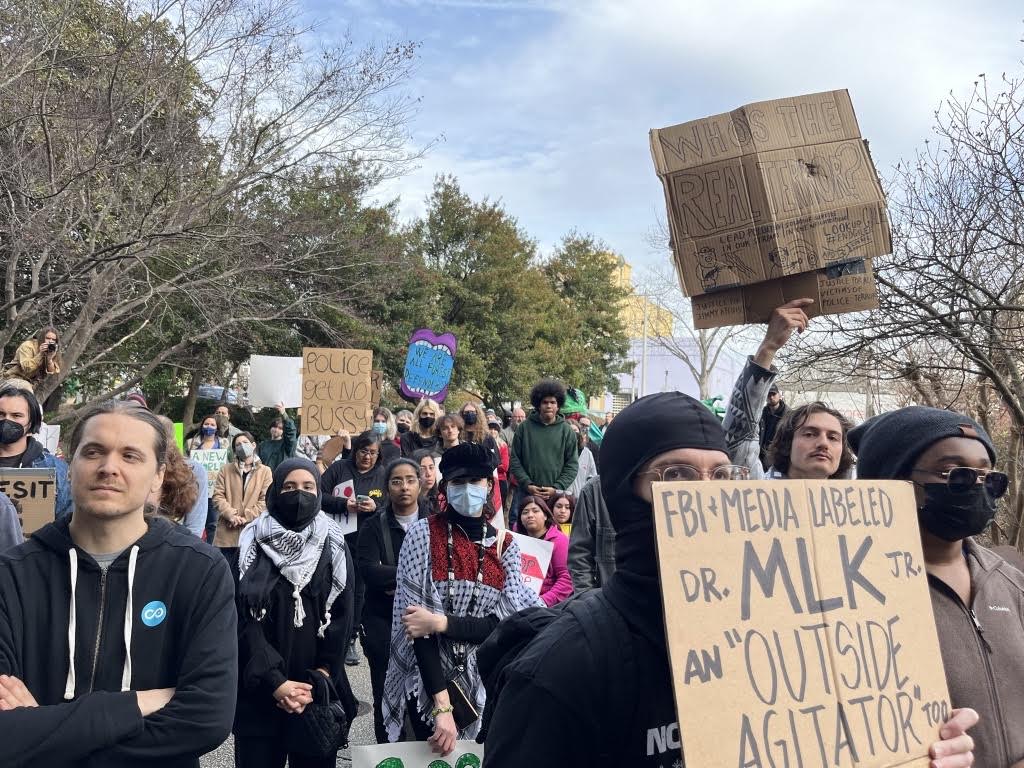
Elsewhere, ridiculously militarized equipment designed for battlefields (not communities), absurd surveillance, and rampant anti-democracy are being used to suppress protests and stifle citizen dissent. The recent Stop Cop City movement is currently attempting to address this in the political and legal arenas. With a little luck, it will serve as a blueprint for future fights for a livable Atlanta.
There’s a throughline across all of the evils described in this essay, of course. Capitalism is the guiding hand and underlying theme tying them all together. Capitalism poses a difficult dilemma for the City of Atlanta. Because it has no morals or feelings, nor does it take into account the human condition, capitalism’s only value is to create and build more capital.
If Atlanta truly wishes to live up to its legacy as the civil and human rights mecca—and the way our local politicians like to invoke King for their own benefit, it sure seems like they wish that—it must also deal with the problems caused by the natural inequality and injustices that capitalism produces and creates here.
We should want to turn Atlanta into the city that Dr. King once described as the Beloved Community, a place where we can all share in the prosperity and adopt a vision that is truly inclusive to human dignity and respect for all in order to thrive and grow together.
But in order to do that, our city and our leaders must decide whose side they’re on. Are they working for the people? Or for capitalism? It may seem a bit reductive to lay it out like this, but if we’re going to reasonably fix almost anything in this town, our leaders are going to need to untether themselves from the latter and start listening to the former.
Stacey Hopkins is a former activist and organizer of more than 20 years, an Atlanta refugee currently living in exile in East Point. She’s worked for organizations such as MoveOn, Coffee Party, and various social justice coalitions in the ATL metro area.
Thanks for reading How I'd Fix Atlanta. In each of these essays, a citizen of Georgia’s capital argues for one way we could make our city better.
If you found this essay on social media or if it was forwarded to you by a friend, know that there are a bunch of more of them you can read. Like what you see? You can also subscribe.
How I’d Fix Atlanta was created by Austin L. Ray. He edits, publishes, promotes, and pays for all this stuff. He's even writing these sentences you're reading currently. Wow.
How I'd Fix Atlanta is a free semi-monthly newsletter. But it’s also an annual zine that costs money. Sometimes it’s a performance on a stage. Other times, it’s a fundraiser. How I’d Fix Atlanta is large, it contains multitudes. Each writer is paid $600 for their time.
